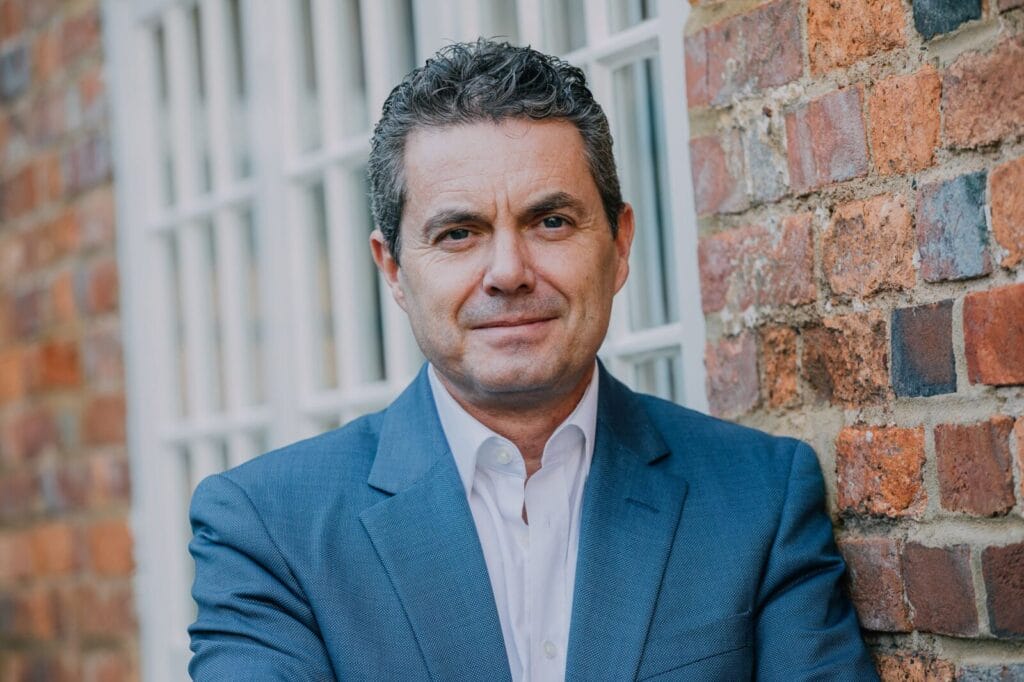David Batchelor, Founding Partner of Wills & Trusts Partnership Ltd and co-founder of the Personal Finance Society, shares the lessons he’s learned from more than three decades of running a highly successful advice business. Drawing on his experience as an adviser, speaker and business coach, David explains why focusing on a clear niche and combining strategic and tactical business development can transform the profitability and longevity of an IFA practice.
For the last 34 years, I have run my advisory practice differently from how most advisers and founders seem to run their businesses. I see myself as a businessman who focuses on financial planning, rather than being an adviser who is in business. This means that I see business development as a crucial part of the business rather than something that I just need to do to bring people in!
I believe there are two parts to business development: strategic and tactical. This means firstly deciding on what battle you want to fight and then how you are going to fight it.
Strategic business development
Strategic business development is all about deciding on the focus of the business. It’s all about the niche that you want to occupy. It’s about deciding on your speciality. It’s about choosing who we want to help. The days of the generic financial adviser are gone; you cannot be all things to all people.
Back in 1998, I started attending Strategic Coach with Dan Sullivan. The coach program taught me that, in business, there is only one thing that counts: Profit. Without profit, you can do nothing. Without profit, you can’t hire good people, you can’t guarantee that you’ll be around for your clients, and you can’t be there for the pro bono work that we all do.
This means being ruthless and building a business that makes money. To do this, your niche must be profitable.
In my practice, I decided to focus on the ‘older’ clients with inheritance tax (IHT) problems because:
- They have money
- They have a big tax problem
- They are around during the day
I know that focusing on this area, I could be profitable. I don’t want pension clients, I don’t want corporate clients, and I don’t want the young and up-and-coming wealthy. Because I have focused on a single niche, I can create tactical business development that works for my focus.
For example, my niche does not use LinkedIn, and so there is no point in doing any business development that involves LinkedIn.
Tactical business development
In the ‘old days,’ tactical business development was called sales. Sadly, sales seem to have a bad name nowadays. However, the reality is that until a sale is made, nothing happens.
How you market your practice and how you sell to clients all depend on your niche. Attending conferences such as the PFS, or MDRT in the US or attending courses such as Strategic Coach is where you will find tactical ideas that are hard to invent yourself.
Last year, I gave a presentation to both MDRT and to the business group, Vistage, called ’60 sales ideas in 60 minutes’. To give you some ideas to start you off when it comes to tactical business development, here are 20 of those 60 ideas. I hope that one or two will work for you:
- Create an eight-page ‘newspaper’ selling the benefits of your business that you can give to clients and prospects. Make it look and feel like a periodical. Have it as a free takeaway outside your office, or have it delivered around your town.
- Start education seminars for leads and prospects on reducing tax…everyone wants to save tax.
- Start education workshops for existing clients or prospects, held in-house, covering the recent pension IHT changes.
- Ask every client to come to the workshop and ask them to bring a friend.
- Charge for your first meeting. Never give it away for free; it reduces its value in the client’s eyes.
- Have your paraplanner or administrator sit in on all meetings and have them do all the implementation and follow-up work. They will hold you to account, and you’ll sell more.
- Record a video to send to prospects prior to the first meeting to prepare them for what’s going to happen. It stops no-shows and improves your closing rate.
- Send a video after the meeting telling them what will happen next. This waterproofs the sale and stops ‘buyer’s remorse’.
- At every client meeting, ask if they will give a testimonial, film it immediately, then put it on your website.
- Send testimonial videos to prospects prior to your first meeting.
- Run a Budget briefing: Invite clients to attend and bring a friend, and spend 2 hours presenting ideas based on the budget.
- Run a Budget lunch. Hire a local restaurant and invite your prospects to lunch while watching the budget. Then spend an hour discussing ideas that come from it.
- Get copies of all your clients’ wills and check they are valid. Then offer to meet all of the executors to explain their duties and responsibilities.
- Run an ‘executor workshop’ where you invite client executors, sharing how to be an executor and how to reduce IHT.
- Review every trust arrangement that clients have for their life insurance and meet with the trustees to explain their duties and responsibilities.
- When the pension IHT ‘tax’ comes into place, have the client draw a small withdrawal from their pension each year to buy life insurance to cover the tax.
- Have clients use their £3,000 pa gifting allowance to buy life insurance to create a bigger estate to inherit.
- Create a grandchildren’s trust for all clients with grandchildren and have them contribute their disposable income to the trust.
- For every trust you establish, run a ‘trustee integration meeting’ where you meet the trustees to explain their duties and responsibilities. They will be the best referral you ever get.
- Write a book that your niche will be interested in, and become a specialist. Offer it on your website, put signed copies in the local book shop and get it on Amazon.
Just one of these ideas could dramatically increase business.

David is the Founding Partner of Wills&TrustsPartnership Ltd, which began as an adviser firm in 1992, but now brings together an independent financial adviser and an accounting firm.















